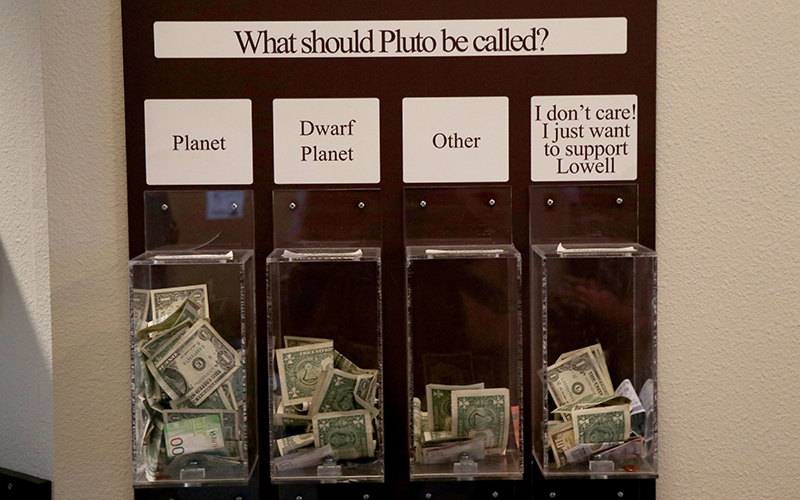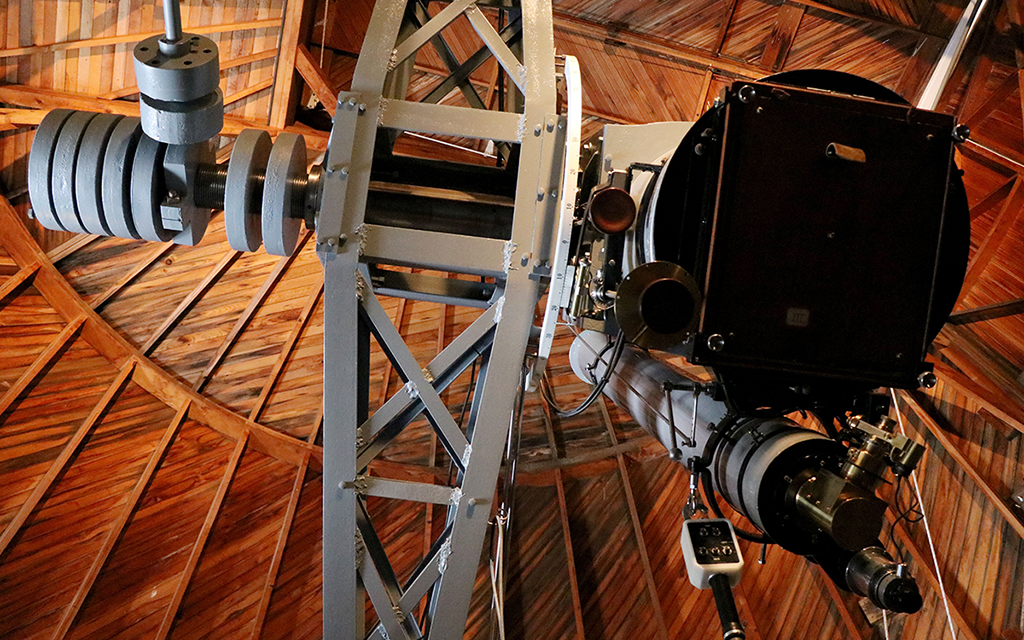PHOENIX – Pluto was taken off the “full-size planet” list almost 20 years ago, but that’s no reason why it can’t still be Arizona’s official state planet, the way Rep. Justin Wilmeth sees it.
“When you think of cactus, you think of Arizona. When you think of Pluto, you think of Arizona,” said the Phoenix Republican.
That may be a stretch but Wilmeth’s “fun” bill to add the planet to the long list of official state symbols was passed 8-1 Wednesday by the House Government Committee.
Supporters said it would help draw attention to the state’s “astrotourism” and to the fact that Pluto – now classified as a dwarf planet on the outer edge of our solar system – was discovered by the Lowell Observatory in Flagstaff in 1930.
“Arizona is known as a worldwide astrotourism destination,” said Lowell Observatory Chief Operating Officer Amanda Bosh in testimony at Wednesday’s hearing. “It has been designed to inspire awe and discovery for residents of Arizona and people worldwide.”
Flagstaff was named the world’s first International Dark Sky Place in 2001 by the International Dark Sky Association. The state now has 19 recognized dark-sky locations, further cementing Arizona’s reputation for celestial tourism.
A report cited by the University of Arizona last February said that “space science activities” at the school were responsible for $560.5 million in total economic impact for the state and $20.1 million in state and local taxes. A 2008 report by the Arizona Arts, Sciences and Technology Academy estimated that the state’s astronomy and planetary science facilities drew more than 200,000 visitors in 2006.

Lowell Observatory turned Pluto’s planetary status into a fun way to get donations, asking visitors in this 2022 photo how they think it should be classified. (File photo by Hope O’Brien/Cronkite News)
“Astrotourism is a significant part of our tourism and something special we have here in Arizona,” said Josh Coddington, a spokesperson for the Arizona Department of Tourism.
Pluto became part of the state’s star-gazing history in 1930 when astronomer Clyde Tombaugh discovered the planet while he was working at Lowell Observatory. It was then the ninth planet in our solar system – but would only hold that title until August 2006 when the International Astronomical Union declared it a dwarf planet.
But Diane Budden, who wrote a children’s book about Tombaugh’s discovery, said that recognizing Pluto as the state’s official planet would be an opportunity to spark conversation in fourth-grade science classes, the grade in which planets and the fundamentals of space are taught.
“Here is an opportunity for a teacher to lead a class with, ‘Pluto is Arizona’s state planet,’” Budden said.
That sentiment was echoed by the American Federation of Astrologers, which said that naming Pluto the state planet would provide a great opportunity for “educational tourism” that can spark interest in both children and adults.
“I think that doing something like this sparks their interest. It’s one of those things where you can have the intersection of science and education and history,” said Barry Aarons, owner of the public policy consulting firm Aarons Co., during testimony on Wilmeth’s bill.
The bill comes as Lowell Observatory is set to open a new Astronomy Discovery Center in November. The $53 million center will include the new Universe Theater, Dark Sky Planetarium, an astronomy gallery and Curiosity Zone. Wilmeth said the center helped spark the idea for his bill.
“I have always had a fascination with astronomy and space, and even for someone like me, an amateur space guy, going to that construction reignited my passion for it,” Wilmeth said of the center.
The bill faced little opposition in committee, but Rep. Steve Montenegro, R-Litchfield Park, said he voted no because he wants more information.
“I appreciate hearing the testimony. I want you to know I genuinely respect that,” Montenegro said. “I want to learn a little bit more to understand it. I want to reserve that vote until we move forward.”
But Wilmeth said after the hearing that he expects little opposition going forward.
“One part of being a legislator that I think is overlooked is protecting our history. Pluto was discovered here in 1930,” he said,
“It is light, and that is by design, but it’s also the historical element,” Wilmeth said of the bill. “I am a big history guy, and … that is crazy to think that 94 years ago this guy looked into a telescope and discovered Pluto. That is 4 billion miles away.”

